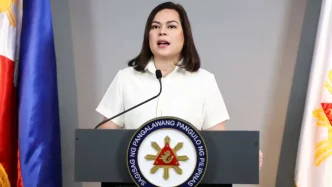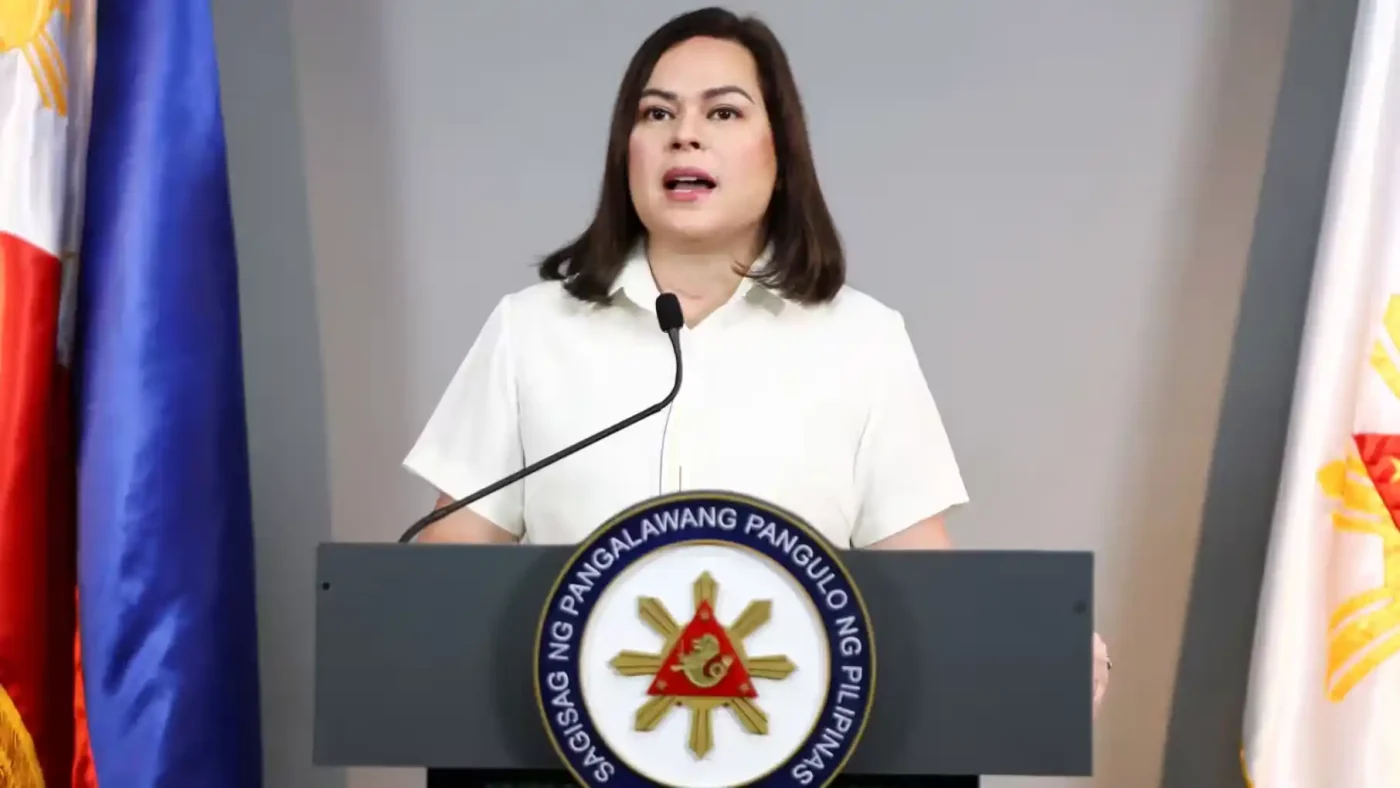As the Philippines braces for the impeachment trial of Vice President Sara Duterte, set to commence in June 2025, the nation finds itself at a pivotal moment. The case, centered on allegations of misuse of confidential funds and controversial actions during her tenure as Education Secretary, is more than a political showdown. It is a litmus test for the country’s democratic institutions and their ability to hold high-ranking officials accountable. With the Senate poised to hear the case, the outcome could reshape public trust in governance and set lasting precedents for the use of public funds.
The Core Allegations
The impeachment complaint against Duterte, filed in December 2024 and endorsed by over 215 members of the House of Representatives, levels serious charges. Chief among them is the alleged misuse of ₱125 million (US$2.2 million) in confidential funds in 2022 during her time as Vice President. Critics claim these funds were disbursed without explicit appropriation in the national budget, raising questions of transparency and legality. Additionally, Duterte faces accusations of red-tagging teachers’ organizations—labeling them as communist sympathizers—while serving as Secretary of Education, an action some argue constitutes a betrayal of public trust.
The Commission on Audit (COA) has previously flagged irregularities in the Office of the Vice President’s (OVP) use of confidential funds, which could play a significant role in the Senate’s deliberations. While the specifics of the audit findings remain under scrutiny, they underscore broader concerns about accountability in the handling of public money by top officials.
Legal Standards and Constitutional Questions
At the heart of the impeachment process are complex constitutional questions. Legal experts emphasize that impeachment is not merely a political tool but a mechanism to ensure accountability among the highest public officers. Atty. Darwin Angeles, a senior lecturer at the University of the Philippines College of Law and De La Salle University Tañada-Diokno School of Law, has outlined the criteria for charges such as culpable violation of the Constitution and betrayal of public trust.
“Impeachment is not only a means of securing accountability of the highest public officers but also a test for our Democracy” said Angeles. He further noted that for a charge of constitutional violation to hold, three elements must be proven: the officer committed a violation, acted in their official capacity, and did so willfully and intentionally, rather than through an honest mistake or good faith error.
On the issue of confidential funds, Angeles clarified that public money allocated for a specific purpose cannot be diverted for other uses without risking charges of technical malversation under Philippine law. While he refrained from offering a definitive opinion on Duterte’s case due to ongoing legal proceedings, his remarks highlight the gravity of misusing public funds. If the Senate finds evidence of intentional misuse, it could establish a benchmark for future oversight of confidential and intelligence funds across government offices.
Betrayal of public trust, another key charge, is a broader and more subjective ground for impeachment. According to Angeles, it encompasses actions that, while not necessarily criminal, demonstrate dishonesty or bad faith, rendering an official unfit for office. “My opinion is that proof of actual damage or malice is not required” said Angeles. “What is required is ‘bad faith’ which is a standard that is distinct from actual damage.”
The allegation of red-tagging teachers’ organizations falls under this category. If proven to have been done with fraudulent or dishonest intent, it could meet the threshold for betrayal of public trust, even if no direct harm is demonstrated. However, with the case still pending, legal analysts are cautious about drawing conclusions.
Political Context and Public Sentiment
The impeachment of Sara Duterte, daughter of former President Rodrigo Duterte, carries significant political weight. Her family’s influence in Philippine politics, particularly in the southern region of Mindanao, has long been a polarizing force. Supporters argue that the charges against her are politically motivated, an attempt by rivals to undermine the Duterte legacy. Critics, however, see the case as a necessary step toward curbing impunity among public officials, regardless of their lineage or connections.
The timing of the trial, just a year before the 2026 midterm elections, adds another layer of complexity. Political alignments within the House and Senate could influence the proceedings, with some lawmakers reportedly hesitant to take a firm stance until public opinion becomes clearer. Social media platforms, including posts from Filipino commentators and activists, reflect a divided populace—some express outrage over the alleged misuse of funds, while others decry what they perceive as a witch hunt.
Beyond the immediate political ramifications, the case has sparked a wider debate about the use of confidential funds in government. These funds, often allocated for intelligence or security purposes, are notoriously opaque, with limited public oversight. If the Senate rules against Duterte, it could prompt reforms to ensure greater transparency and accountability, potentially affecting how future administrations handle such budgets.
The Senate Trial: Process and Implications
Under the Philippine Constitution, the House of Representatives holds the exclusive power to initiate impeachment proceedings, while the Senate acts as the impeachment court. In Duterte’s case, the complaint bypassed lengthy House hearings due to the endorsement of over one-third of its members, fast-tracking it to the Senate. This procedural precedent, also seen in the 2012 impeachment of former Chief Justice Renato Corona, underscores the urgency and political consensus surrounding the charges.
The Senate trial, expected to begin on June 2, 2025, will likely span several months, with a potential verdict by October. Senators will evaluate evidence, hear testimonies, and deliberate on whether Duterte’s actions meet the constitutional thresholds for removal from office. A two-thirds majority is required to convict, a high bar that will test the independence of the Senate from political pressures.
Legal scholars like Angeles believe the trial’s outcome will have far-reaching consequences. “Definitely it will set a precedent” he said, pointing to the bicameral structure of the Philippine legislature as a deliberate safeguard against arbitrary removals. Unlike unicameral systems where a vote of no confidence can oust a leader, the impeachment process in the Philippines demands rigorous scrutiny and bipartisan agreement.
A Defining Moment for the Rule of Law
As the trial approaches, the impeachment of Sara Duterte is shaping up to be more than a personal or political reckoning. It is a critical examination of the Philippines’ democratic framework and the mechanisms designed to uphold the rule of law. The case raises fundamental questions about the balance of power, the ethical responsibilities of public officials, and the limits of executive privilege in managing public funds.
For many Filipinos, the trial is a chance to reaffirm trust in institutions often criticized for favoritism or inefficiency. A fair and transparent process could bolster confidence in the Senate’s role as an impartial arbiter, while a perceived miscarriage of justice might deepen cynicism about governance. The stakes are high, not just for Duterte, but for the future of accountability in Philippine politics.
Moreover, the global community is watching. The Philippines, often seen as a democratic outpost in Southeast Asia, faces scrutiny over how it navigates this high-profile case. A conviction could signal a commitment to anti-corruption measures and fiscal responsibility, while an acquittal—especially if seen as influenced by political alliances—might raise concerns about democratic backsliding.
Looking Ahead
As the Senate prepares to convene, the nation waits with bated breath. Will the trial of Sara Duterte reinforce the Philippines’ commitment to democratic principles, or will it expose fractures in its political and legal systems? The answers, expected to emerge over the coming months, will likely echo beyond the walls of the Senate chamber, influencing how power and responsibility are understood in one of Asia’s most dynamic democracies.
For now, the case serves as a reminder of the delicate balance between authority and accountability. As proceedings unfold, the eyes of history are on the Philippines, watching to see if its institutions can withstand the pressures of politics and deliver justice in the face of complexity.
















